The Interview: George R.R. Martin on 'Game of Thrones', prequels, and the art of writing
When a literary great like George R.R. Martin comes to town, naturally, fans flock to see him. As is clear from the queues of people waiting to attend a special screening of 'Forbidden Planet' in the IFI last Saturday. Sure, it's a sci-fi classic that still holds up today, but the big draw is undoubtedly the Q&A beforehand with 'Game of Thrones' author George R.R. Martin.
Ahead of this, I was truly honoured to get a chance to sit down with one of the world's most famous authors for a chat. Certain questions were restricted, which was fair enough. His team no doubt know well enough by now how fans and the media pounce on every word he says in relation to 'The Winds of Winter', his next long-awaited 'Game of Thrones' book. The backlash to the finale was also a conversation to be avoided. Other than that though, Martin was happy to chat away about 'Game of Thrones', including the upcoming prequel pilot written by Jane Goldman.
It's not often we've had George R.R. Martin grace our shores, but he tells me he has been here "maybe a half dozen times before".
"Over the years my wife has been here a lot more. She has friends she would come over and visit and spend time here. I've been here a few times for conventions and just as a tourist, that sort of thing."
He had just spent the entire day at the World Sci-Fi Convention in Dublin, which takes place each year in different locations around the world, with Martin regularly attending.
Of course, the obligatory chat of Irish ancestors came up, with Martin saying he has Irish on his mother's side, "The Bradys of Oldcastle, Co Meath", he says. "I have Irish on my father's side too", he adds, "but it's buried among the German, Italian and Jewish."
The map of Westeros is also a map of Ireland turned upside down. This was revealed some time ago but he confirms it, saying, "The fingers are like the Dingle peninsula, the north I just made up."
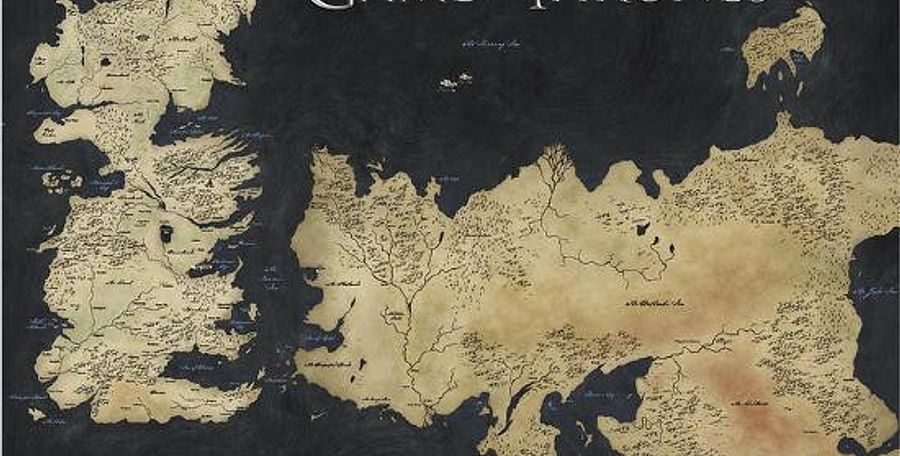
Westeros
The chat of course then turns to 'Game of Thrones' and I want to know which character on the show he thought best encapsulated the role as he first envisioned on paper. "That's a hard question", he says. "You're asking me who is my favourite child!"
He does add, however, that the person who was the easiest to cast was Tyrion.
"You know we never even looked at anyone besides Peter Dinklage. We auditioned no one for that role. We said we had to get Peter Dinklage and just went and made him the offer. Peter is not actually physically much like Tyrion. He is a handsome man and Tyrion definitely is not.
"And Peter is actually probably about a foot taller than Tyrion as described in the books. Probably the only time that Peter has ever been described as possibly too tall for a role. But he's been a marvellous Tyrion and I think for millions of people around the world he will always be Tyrion Lannister. He really does not at least physically fit the description of the books but his acting and everything he brings to it is perfect."

Tyrion Lannister
It's then the conversation moves to the process of writing itself. Here is a man that has created the entire world of the Seven Kingdoms and beyond in his mind, complete with a history that is the inspiration for a number of prequels (one of which 'The Long Night', has just filmed its pilot in Belfast - we'll get to that).
While there are times he can completely transport himself to Westeros and the writing flows, at other times, it's not so easy.
"For me, it's a struggle. I always go through phases where I hate what I've written. 'This is crap. Why does anyone like it? I don't know.' I reread what I wrote yesterday and I just want to tear it up and do it all over again.
"But when I finally get it into a shape where I like it, I switch to the opposite extreme. 'Oh this is great stuff. They're going to love this here.' And sometimes it's not the things that you would think.
"It's not big moments or all that, it can be something like a description of a landscape. They're riding through a mountain pass or they're riding through a swamp, and I spend a lot of time just trying to get it right to put you in that mountain pass or in that swamp, to vividly describe it. It's not something critics or people ever come up to me at a signing and say, 'I really love the way you've described that swamp.' But if I do it well then you see the swamp and you smell the swamp and you're there with the characters in that moment. And for me, that's the art of writing."
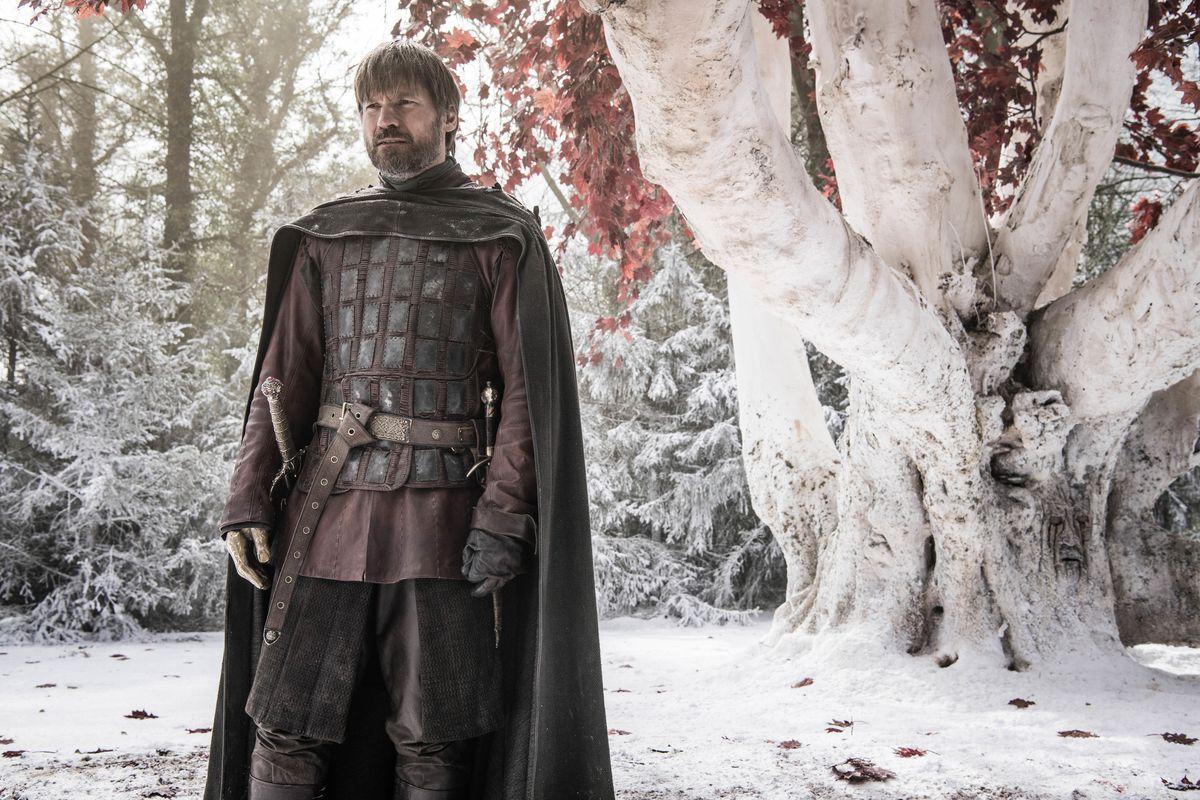
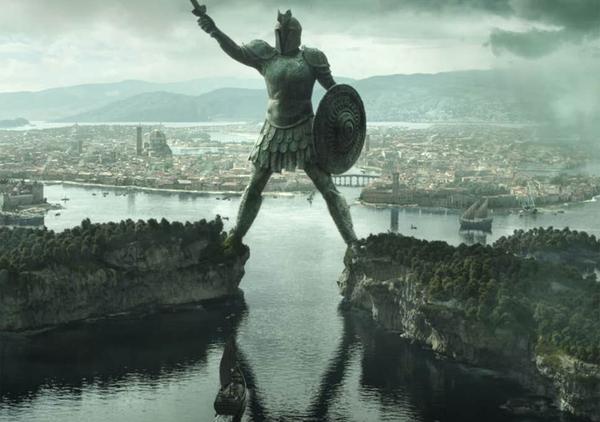
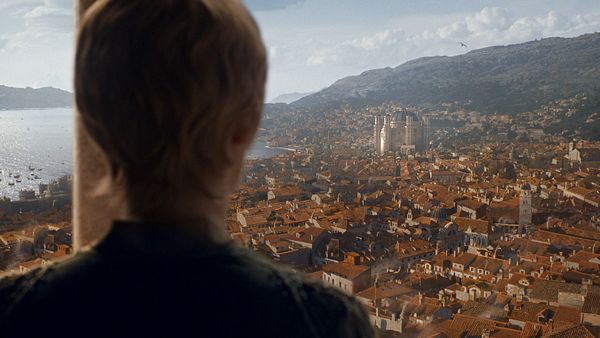
Martin has famously taken his time with writing the 'A Song of Ice and Fire' series, with the most recent book, 'A Dance with Dragons', coming out in 2011, and two more books yet to follow. He has previously said that the success of 'Game of Thrones' brought with it its own distractions, which are difficult as Martin is not an author who can write anywhere, any time.
"I need the entire day free, preferably a large chunk of time, at least a week or two weeks free where I am not going to be interrupted or distracted. I need to be in my own place. I've tried in the past - writing in hotel rooms, writing on trains, writing on airplanes - never worked for me. It's too alien an environment. When I'm in my own place, in my own office, on my own computer, I can fall through the page, I can go to Westeros. Be the characters. And that's where I need to be to write. Anything that disrupts that kind of isolation or that takes me out of it, I don't like it. I do my best work in the morning, I get up in the morning, have coffee and then start to work. And even if I have like a four o'clock appointment. That's going to distract me at eleven o'clock.
"Other writers can write in the middle of a hurricane," he chuckles. "On a sinking ship! But that's not me."
This means of course that the TV show soon surpassed the books, with showrunners David Benioff and Dan Weiss choosing to conclude the show after eight seasons. As we said, Martin did not want to talk about the backlash the series received for its underwhelming final season but he did seem wishful that there had been more seasons.
"There's enough material in the books that if they included all of it we could have gone for 13 seasons instead of eight, really seven and a half because the last two seasons were shortened. But the decision was made four or five years ago to eliminate characters like Lady Stoneheart and other important characters... also Quentyn Martell. When you eliminate a lot of subplots you simplify things and bring it to an end where it is. Who knows, maybe that was the right decision. You can't quarrel with the most popular television show in the world."
He adds, "I have my books in mind and I'm going ahead and I know I'm very slow but I'll get there eventually."
Until then, fans have a prequel TV series to look forward to, with Martin working with HBO who are considering three possible options. Two are just at script stages but the most talked about is Jane Goldman's 'The Long Night' (a working title), which will star Naomi Watts and is set 5,000 years before the events of 'Game of Thrones'. It will be set in the Bronze Age, Martin confirms, before the coming of the Andals in Westeros.
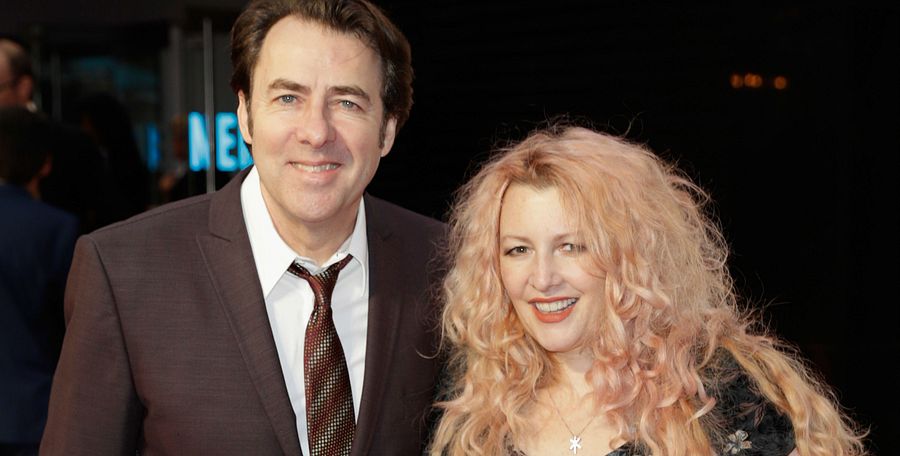
Jane Goldman and husband Jonathan Ross.
"Jane Goldman has wrapped up in Belfast and I just saw her in London. She's deep in the throes of post-production. I hope to see a cut of it probably by early September."
He continues, "In some ways, Jane's show is based on eight random sentences scattered throughout the books so she has really brought a lot to the table. But we met in Santa Fe [where George lives] on a couple of occasions and then we met again in Los Angeles when she was out there visiting. So we've had long discussions about it before she went off. She's only got a few little signposts along the way here so she is bringing a lot."
The George R.R. Martin adaptations are coming thick and fast, although the series based on his 1980 novella 'Nightflyers', shot here in Limerick, was sadly cancelled by Netflix this year. "Unfortunately they elected not to continue with that which was disappointing," Martin says. "But I know that's television. Sometimes you run for ten years, sometimes you run for ten episodes, and you are really powerless to affect it one way or another. All you can do is do the best job you can and hope that it catches fire."
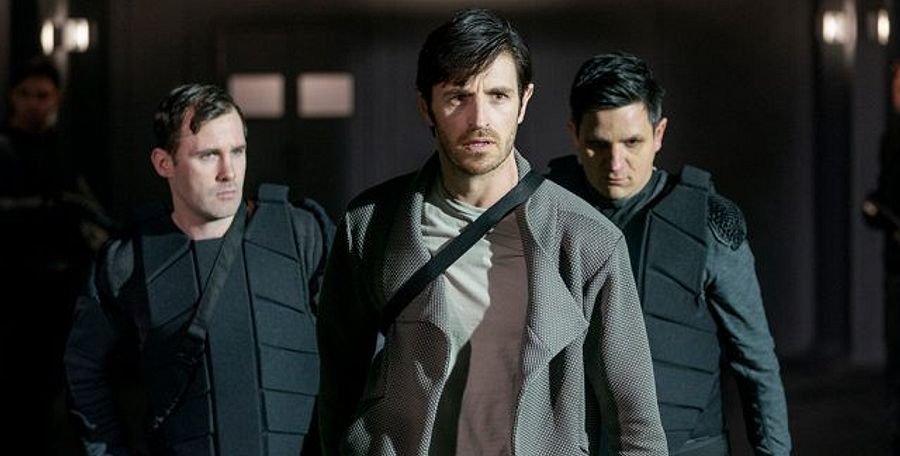
Nightflyers.
He speaks from experience, having spent a great deal of time working in TV in the '80s and '90s, writing on shows like 'The Twilight Zone' and 'Beauty and the Beast'. In fact, it was the limits of television that inspired Martin to write 'Game of Thrones', as he was growing tired of his TV pilots and screenplays not being made due to budget constraints and the like. He knew with books he would never need to compromise the limits of his imagination.
Martin had written plenty of books before 'Game of Thrones' however, and now there are adaptations on the way of the likes of his 1979 novelette 'Sandkings', his 1980 novella 'Ice Dragon', as well as two shows for Hulu based on his 'Wild Cards' series of books.
Everyone wants a piece of that George R.R. Martin pie and at 70 years of age, he has found fame and fortune that would be beyond most author's wildest dreams. "Fortune is great", George says, "but fame is a double-edged sword."
"I've had a pretty successful career, all things considered, even before 'Game of Thrones'. I started selling stories in 1971. I won a Hugo Award in '75. From '79 I made my career as a writer. Yeah I had a few crises where it looked like I was about to be flushed down the toilet but I rebounded from those. You always have to dream in your head of fame and fortune."
He continues, "There are certainly wonderful things about it. I don't think I would be here with the Irish Film Institute if I didn't have a certain amount of fame.
"But you can't turn it off, it is relentless and I have found that over the last ten years. I always had a certain amount of fame. You know, we had the World Science Fiction Convention going on at the centre [The Convention Centre Dublin] and I've been attending that since '71. In that subculture of science fiction fandom, I always had a certain amount of fame where I would put on my name badge and people would ask for my autograph and put me on panels. They would ask me to give speeches and then I could take off my name badge and just go out and be an average guy. I can't take off my name badge now, well I can but they figure it out anyway.
"That can be trying at times. I am glad that it came to me in my 60s. I can't imagine these kids, like pop stars and all that, who will become world-famous and instantly recognizable all over the world at 17 years of age. No wonder they go crazy. I couldn't have handled any of this at 17 years of age. There are enough challenges in handling it at 65."
So why did so many millions of people latch onto 'Game of Thrones'? Even people who have previously had no interest in fantasy tuned into the TV series in their droves. George's explanation is that it's down to the characters.
"We watch television shows or movies or read books because we form an emotional relationship with the characters, we want to find out what happens to them. I do think HBO really improved things in that regard, because when I worked in television in the '80s and '90s, the hallmark was the characters had to be likeable. And I had many a struggle with a character who was complex and tormented and wasn't likeable enough so the show would not get approved to go forward.
"But I think HBO shattered that with 'The Sopranos'. The fact that that show was as successful as it was I think proved, at least outside of network television, that characters don't have to be likeable, they have to be interesting and complex. Since then, HBO has done a lot of shows with complicated, grey, conflicted but interesting characters and hopefully, I made the characters in 'Game of Thrones' interesting enough that people related to one or the other. I have a large enough cast that the people who love Daenerys don't necessarily love Tyrion and the people who like Tyrion may dislike Jon Snow.
"So that's the complicated answer," he says. "The simpler answer is if I really knew what it was I would have done it 20 years ago!"
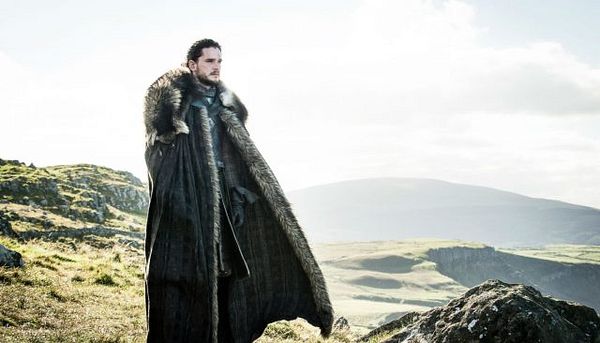

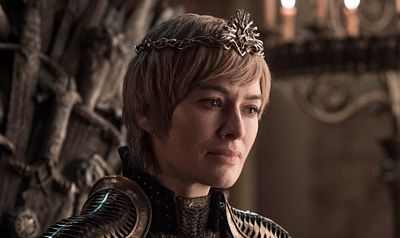
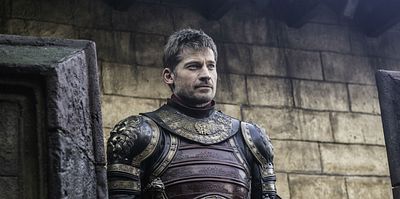
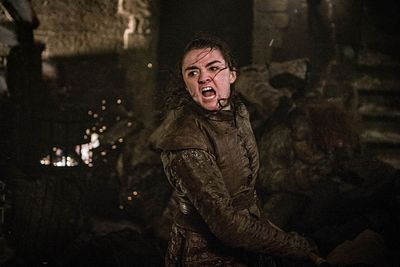
Fans of Martin will be happy to hear he has no plans of slowing down and his head is constantly churning with new ideas and possible spin-offs for 'Game of Thrones'. One that sounds particularly interesting is a show called 'Spearcarriers', focusing on the stories of the characters in the background of 'Game of Thrones'.
"There are always people in the background and sometimes I wonder about them - what are they thinking? What are they feeling? They're about to go into battle so what happened to them before the battle... what happened after? How did it affect their lives?
"It's a little bit 'Rosencrantz and Guildenstern are Dead'", he adds.
He pitched it to HBO but they didn't seem too enthused about it, according to Martin. Who knows though, it could be a runner down the line.
If not though, Martin says that there are also "about 20 possible novels and at least a dozen television shows" from his most recent book 'Fire and Blood', which is a history of the Targaryens. And there will be "equally as many in 'Fire and Blood 2'", he adds.
He is also fascinated with Arya's journey through Braavos in 'Game of Thrones'. "It's a different dynamic than the other settings," he says. "It's more like Venice or Genoa in their height, you know, a different aspect on history traders. Merchants rather than kings and princes exploring the world on seas."
There's no end to Martin's imagination but as he admits, "There's just not enough time in the day. Not enough days in the year. I'm not as young as I used to be. So will I have time to tell these stories? I hope I do."
So do we all George, so do we all.

